Imagine stepping onto the hardwood at an age when most athletes are considering hanging up their jerseys for good. Across the annals of college basketball, a select few have not just laced up their sneakers well into their twenties, but they’ve become college basketball legends in their own right. Defying all odds, these athletes are the oldest college basketball players ever, their incredible journeys and age-defying feats stand as a powerful testament to the undying spirit and love for the game.
These players often have stories that mirror epic odysseys, brimming with layers of life lived outside the painted lines before returning to the echoing cheers of college arenas. Take, for instance, Spencer Johnson, a BYU guard, whose story of persistence and leadership redefines the quintessential image of a college athlete.
These seasoned veterans, with tapestries rich in experience, bring an unparalleled depth to their teams and to the sport itself. They are more than just players; they are purveyors of dreams and a mirror into the soul of basketball.
Key Takeaways
- Remarkable stories of the oldest college basketball players ever reveal the vast diversity within the sport.
- Players like Spencer Johnson challenge normative expectations and showcase leadership and maturity on the court.
- Age-defying feats in college basketball illuminate the enduring passion athletes have for the game.
- The unique experiences of veteran college basketball players offer invaluable benefits to their teams.
- These collegiate legends inspire both fans and fellow athletes by proving that age is but a number in the realm of sports.
- The journey of these players underscores the importance of dedication, resilience, and the pursuit of dreams.
The Phenomenon of Age-Defying Players in College Hoops
In the competitive landscape of NCAA basketball, a unique subset of athletes are drawing attention not just for their skills on the court, but also for their unconventional collegiate timelines. Senior college basketball players, who often break college basketball age records, redefine the connection between age and athletic performance in a sports domain traditionally dominated by younger talent.
What Makes Senior College Basketball Players Stand Out
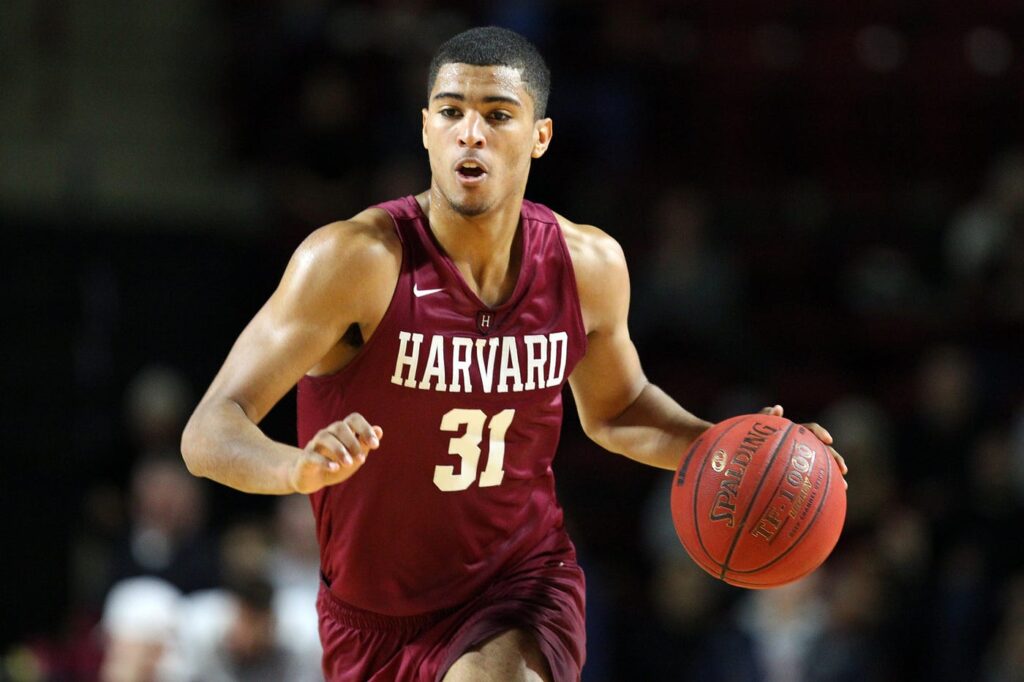
Source: medium.com
Age-defying college basketball players embody an exceptional blend of maturity and experience, traits that typically come with time and are rare in younger athletes. This unique combination often translates to enhanced leadership on the court and a strategic understanding of the game, giving their teams an invaluable edge. With the presence of wisdom and a solid work ethic, these players showcase a different kind of competitive advantage—a testament to the adage that age is just a number.
The Impact of LDS Missions on Utah Athletes’ Age
Utah offers a distinctive glimpse into the world of collegiate sports through its contingent of older athletes, many of whom delay their college eligibility to embark on two-year LDS missions. This hiatus, taken shortly after high school for the Church of Jesus Christ of Latter-day Saints, means that athletes like Spencer Johnson return to pursue college sports with a two-year age increment—an intrigue that has gradually become synonymous with Utah’s athletic narrative.
The Rarity of Competing as a Senior Player
Competing in college basketball often aligns with precise eligibility periods following high school graduation, making appearances by senior college basketball players relatively uncommon and noteworthy.
When an athlete in their mid to late twenties hits the hardwood, it upends conventional expectations and contributes a rare perspective to the rhythm of college hoops. Names like Spencer Johnson become symbols of perseverance and non-traditional paths that continue to shape and diversify the stories of NCAA basketball.
Oldest College Basketball Players Ever (Wild Stories)
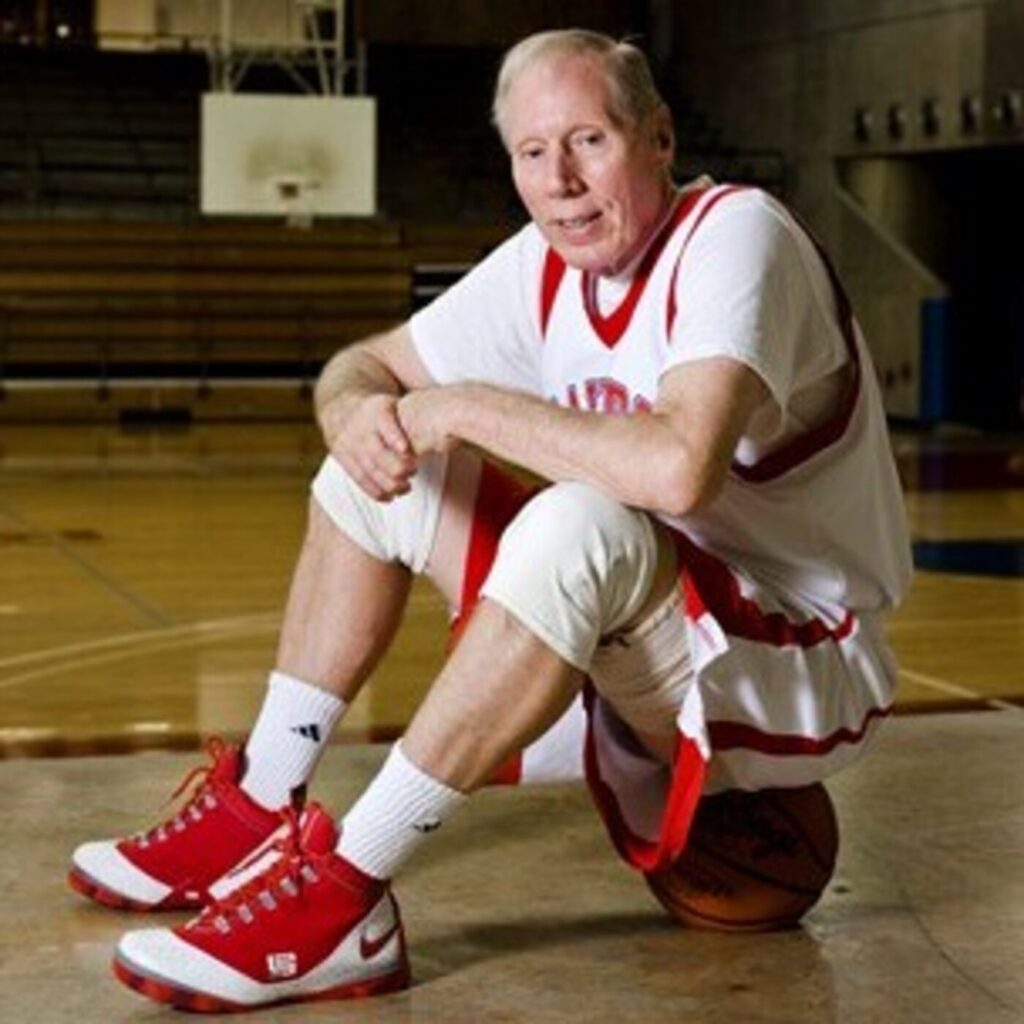
Source: buzzsprout.com
The tapestry of NCAA basketball is woven with the perseverance and dedication of some of the oldest college basketball players to have graced the court. Their journeys are rarer than a perfect bracket, challenging the typical collegiate athlete archetype, and providing wild stories that captivate fans and inspire future generations.
One such instance is Ken Mink, who, at 73, laced up for Roane State Community College in 2008. While his minutes were limited, his presence on the court was a profound testament to the adage ‘age is just a number.’
Another name that echoes in the halls of age-defying athletes is Bernard Toone, who, after a long hiatus from academics and professional international play, returned to play for Montclair State at 40. These players, among others, emerged from unique life circumstances, embracing journeys that led them back to passion-filled arenas.
| Player | Age | College | Year Played |
|---|---|---|---|
| Ken Mink | 73 | Roane State CC | 2008 |
| Bernard Toone | 40 | Montclair State | 1996 |
Moves that bend the expected narrative of a college athlete also come from transfer rules and eligibility extensions. Consider Mike Flynt, who, after being expelled from Sul Ross State in his senior year in the 1970s, returned to complete his eligibility at 59 in 2007.
His story highlights not just an unquenchable thirst for completion but also the NCAA’s complex eligibility rules that provide unexpected avenues for participation. Each name in the annals of oldest NCAA basketball players serves as a lighthouse for those navigating the unpredictable waters of college athletics.
As these wild stories of the oldest college basketball players demonstrate, it is never too late to chase dreams or redefine personal goals, particularly within the realm of competitive sports.
“Age is no barrier. It’s a limitation you put on your mind.” – Jackie Joyner-Kersee
- Life circumstances such as military service, personal choices, and missionary work contribute to older athletes’ late entry or re-entry into college basketball.
- Extended eligibility and redshirt seasons can delay an athlete’s exit, yielding mature contenders amidst a youth-centric sport.
- The wisdom and life experiences older players carry often translate into leadership and mentorship, enriching the team culture.
In closing, these oldest NCAA basketball players, with their wild and impactful stories, stretch the perceived limitations of athletic prime, fostering a richer, more diverse sports narrative that continues to resonate across the collegiate landscape.
Breaking Down College Basketball Age Records
Exploring the annals of NCAA basketball reveals a fascinating aspect of the sport: college basketball age records. A blend of exceptional stories unfurls where the oldest basketball players in college have redefined the boundaries of eligibility and resilience. Among such players, standouts like Alexis Yetna and Spencer Johnson epitomize the sheer tenacity it takes to maintain a career in college hoops well beyond traditional timelines.
These players, having navigated the obstacles of injuries, transfers, and occasional redshirt seasons, often find themselves crafting an extended chapter in the history books of college basketball. For some, the unexpected circumstances of events like the COVID-19 pandemic offered unforeseen opportunities to extend their stay on court, not just competing, but contributing profoundly to their teams.
What sets these athletes apart in the college basketball age records are not merely numbers on a page but stories of dedication, growth, and the pursuit of athletic and personal development. These are players that have become cherished figures within their institutions, symbolic of enduring spirit and the never-say-die attitude required to compete at the collegiate level, irrespective of age.
| Player | Team | Age During Playing Season | Years in College Basketball |
|---|---|---|---|
| Alexis Yetna | Seton Hall Pirates | 25 | 6 |
| Spencer Johnson | BYU Cougars | 26 | 7 |
As the interest in age records in college sports continues to grow, it becomes clear that the stories behind the numbers are as intriguing as the statistics themselves. The commitment to the sport displayed by the oldest basketball players in college is a powerful testament to the diverse and multifaceted nature of college basketball, encapsulating the values of the NCAA and the spirit embedded in college sports.
Incredible Stories of Oldest College Basketball Players
The rich tapestry of NCAA basketball is woven with the incredible stories of the oldest college basketball players, who bring a unique blend of maturity, skill, and wisdom to the court.
These seasoned athletes craft narratives that extend far beyond traditional career timelines, offering a distinct perspective on the game. Among these age-defying talents is Spencer Johnson, a player who not only epitomizes the concept of leadership but also the strategic cunning born out of life’s broader experiences.
Spencer Johnson: A Modern Tale of Vet Cunning
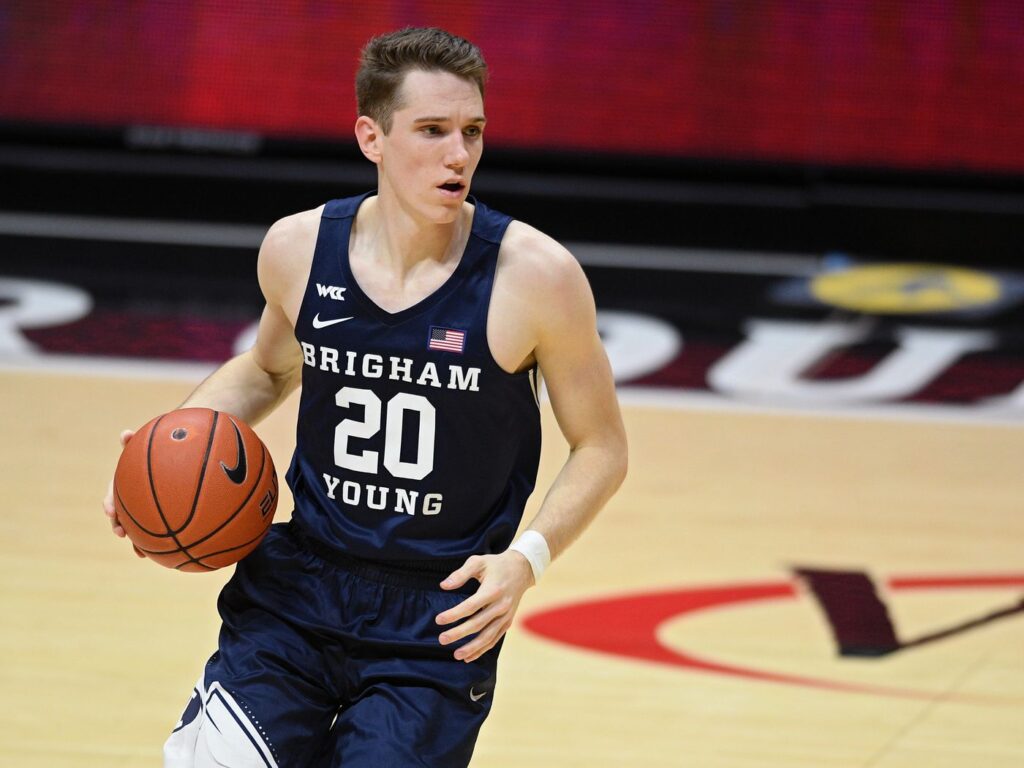
Source: vanquishthefoe.com
Spencer Johnson’s journey from Weber State to Brigham Young University (BYU) represents more than the typical collegiate basketball career; it is a modern tale of persistence, growth, and the cleverness of a seasoned vet. Johnson has evolved into a consummate leader at BYU, where his sage insights and well-honed strategies have been invaluable. His role has proven critical in pivotal games, making him a standout example of the advantages that older players can bring to a team.
Notable Performances by Senior Players
While Spencer Johnson’s leadership is a highlight, he is not alone in the annals of notable senior players. The court has seen many who have left their mark with significant performances that leverage the competitive and strategic advantages conferred by age and experience.
These players, through their advanced years relative to their teammates, offer an enriched approach to the game, often seen in their decision-making, endurance, and ability to navigate high-pressure situations. The table below showcases some of the remarkable achievements of these seasoned college basketball players.
| Player | University | Age | Notable Achievement |
|---|---|---|---|
| Spencer Johnson | BYU | 26 | Transformative team leadership and key game contributions |
| Ken Mink | Roane State | 73 | Oldest player to score in a college basketball game |
| Darnell Archey | Butler | 24 | Record-breaking consecutive free-throw record |
| Tim Duncan | Wake Forest | 21 | Outstanding collegiate career before NBA success |
How Returning Missions Influence Player Ages and College Careers
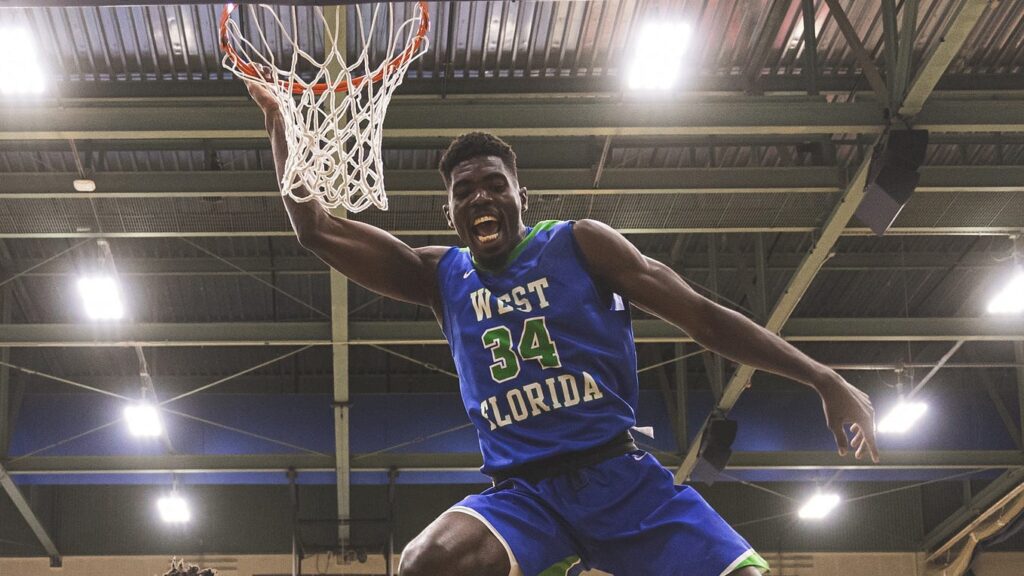
Source: medium.com
LDS missions have a profound impact on collegiate athletes, particularly those from Utah schools such as Brigham Young University and Utah Valley University. These athletes often embark on two-year missions for The Church of Jesus Christ of Latter-day Saints, a formative period that not only matures them personally but also delays their entry into college sports.
This dynamic significantly influences the age at which athletes start or resume their college basketball careers, makes them older college athletes, and in turn shapes the player age influence on college teams.
Older athletes often bring to the game a level of maturity and life experience unparalleled by their younger peers. Their return from missions can assimilate into a college environment where leadership, diligence, and perspective are greatly valued. This unusual situation in the NCAA landscape enriches the player’s academic and athletic experience, invariably affecting their performance and that of the team.
| Athlete’s Starting Age | Typical College Athlete Age | Age Difference | Impact on Team Dynamics |
|---|---|---|---|
| 20-22 years | 18-19 years | 2-4 years | Increased maturity and leadership |
| 22-24 years | 19-20 years | 3-5 years | More life experience and resilience |
| 24+ years | 20-21 years | 4+ years | Enhanced strategic understanding of the game |
The table above elucidates the recurrent age disparity between LDS mission-returning athletes and the average college player. It also highlights the substantial ways in which this difference contributes to enriching the dynamics within a college team environment.
- Older college athletes typically exhibit a level of dedication and focus that can set a positive example for younger teammates.
- The player age influence, with older athletes often in leadership roles, can result in teams that quickly adapt to competitive pressures.
- Missions often inject a global perspective and an increased cultural awareness into the collegiate team, fostering a broader understanding among players.
Returning from an LDS mission, these older athletes reenter the academic and athletic arena with a redefined purpose and an enriched perspective that extends far beyond the basketball court. Their sagacity in game situations and their fortitude in academic pursuits often render them indispensable to their teams and coaches.
Clearly, the customary gap years spent serving a mission amount to more than a hiatus from education and competition. They form part of a larger narrative where LDS missions carve out a distinctive brand of college athletes—disciplined older individuals who can profoundly influence team strategy and the overall competitive landscape of college basketball.
Pioneering Players: Setting a Precedent in NCAA History
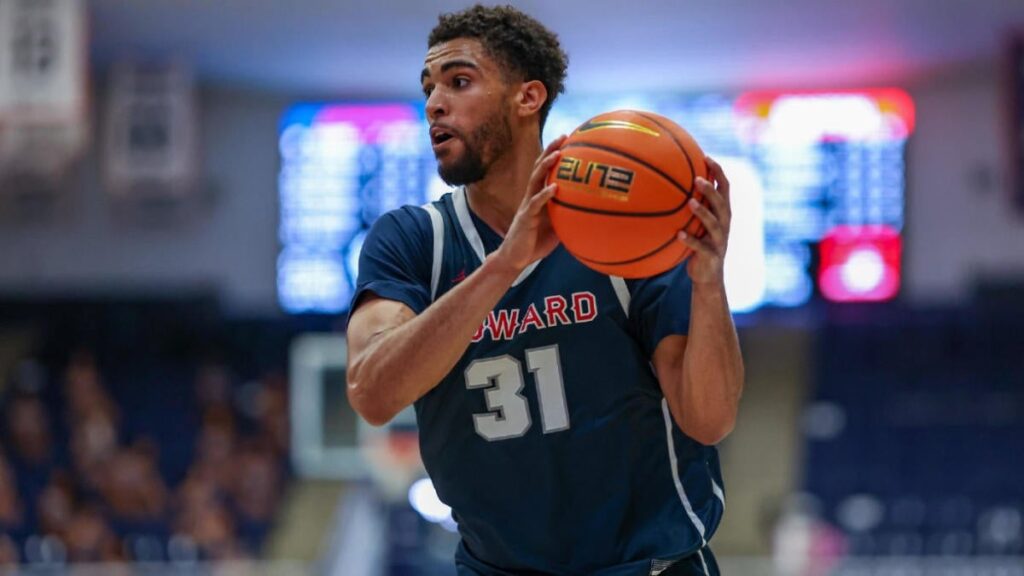
Source: cbssports.com
In the annals of NCAA history, certain individuals stand out not just for their skill on the court but for their unique circumstances. These pioneering players—older, wiser, and with life experiences beyond those of their peers—have not only challenged the standard definition of a college athlete but have also triggered a profound cultural shift. The presence of these seasoned competitors has revolutionized the player experience, casting a spotlight on the invaluable role of maturity in collegiate sports.
The Cultural Shift in Player Experience Levels
The NCAA’s landscape has traditionally been a playground for youthful exuberance and raw talent. However, as older athletes have carved their paths through the league, there has been a significant cultural shift in how experience is valued.
These players have turned their age into an asset, demonstrating that player experience involves more than physical prowess; it encompasses leadership, strategic thinking, and emotional intelligence—qualities that are sharpened over time.
Iconic Older Players and Their Legacy
Several iconic older players have left an indelible mark on NCAA basketball. They have opened doors for athletes who might have considered their college playing days to be a foregone opportunity.
By putting forth stellar performances, these seasoned competitors have established a legacy that transcends the scoreboard, influencing upcoming generations of players to redefine success and the trajectory of their sports careers.
| Player | University | Age During Play | Impact |
|---|---|---|---|
| Ken Mink | Roane State | 73 | Highlighting the limitlessness of athletic dreams |
| Bernard Woodside | Florida International University | 31 | Bringing diverse life perspective to team dynamics |
| Manute Bol’s Son, Bol Bol | Oregon | 23 | Blending legacy with unique skill development |
Highlighting Spencer Johnson’s Journey and Growth
Spencer Johnson’s journey from a promising talent at Weber State to a standout performer at Brigham Young University (BYU) exemplifies the resilient spirit of college basketball players navigating through unexpected challenges and emerging stronger. Amid the backdrop of his collegiate evolution is the influence of a global health crisis that has left an indelible mark on student-athletes and the sports landscape.
From Weber State to BYU: Spencer’s Path
Transferring from Weber State to BYU, Spencer Johnson’s path wasn’t just about changing uniforms; it was a transformative journey that encompassed substantial personal and athletic growth. At BYU, Johnson’s refined skills and mature perspicacity about the game positioned him as a key figure, drawing from his experiences to advance his team’s competitive edge.
COVID-19 Impact on Eligibility and Legacy
The COVID-19 pandemic upended the traditional experience of college athletes, extending eligibility and infusing the system with a dose of unpredictability. For Spencer Johnson, the eligibility extensions granted by the NCAA afforded him a rare opportunity to bolster his athletic and academic aspirations—to further his impact and leave a richer legacy.
As a direct result of this regulatory response to the crisis, college basketball growth witnessed a unique chapter wherein the pandemic’s adversity translated into additional time for skill refinement and team contribution.
| Period | Team | Impact |
|---|---|---|
| Pre-COVID-19 | Weber State | Developing talent, foundational skills |
| COVID-19 and Eligibility Extension | BYU | Extended impact, leadership growth |
In conclusion, Spencer Johnson’s journey through college basketball, molded by circumstances like the COVID-19 eligibility impact, not only showcases his adaptability but also reflects the larger narrative of student-athletes who are navigating their way through this unprecedented era in sports history.
The Competitive Edge of Older College Basketball Players
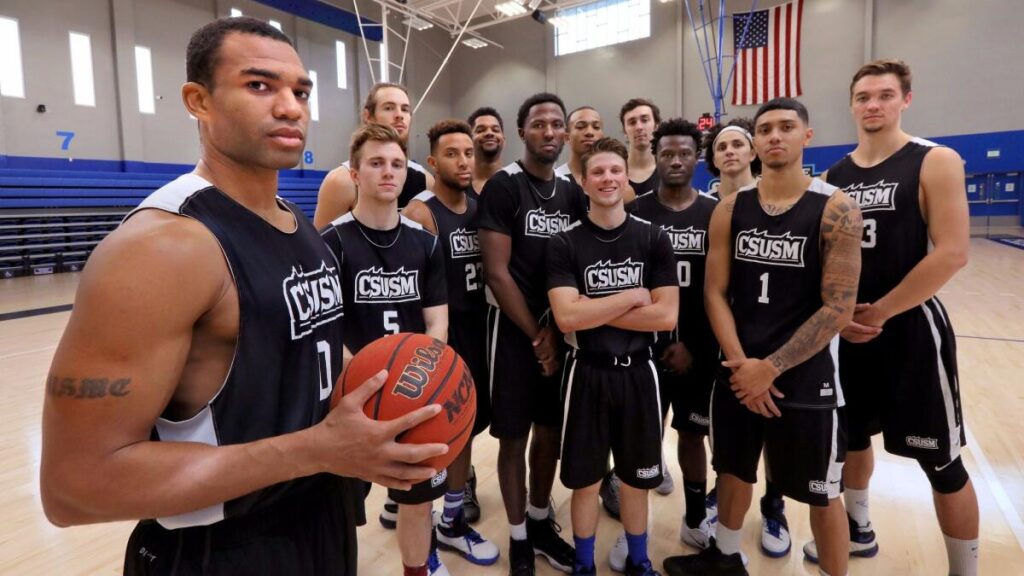
Source: sandiegouniontribune.com
Chronologically gifted athletes in college basketball harness a competitive edge that is often undervalued in the youth-focused sports culture. Their extended time in the game not only refines their skills but also fosters an environment ripe for the transfer of knowledge and mentorship—an invaluable asset to any collegiate team eyeing victory. Let’s explore how the blend of experience, leadership, and tactical prowess gives older players a distinctive advantage on the hardwood.
Mentorship and Leadership Roles of Veterans on the Team
In the realm of collegiate basketball, the integration of veteran players often corresponds with a surge in team performance. These individuals assume crucial mentorship roles, guiding younger teammates through the complexities of the game and college life.
Their leadership roles extend beyond the court, as they model professionalism, discipline, and work ethic—qualities imperative for success at the highest levels of competition.
The Tactical Advantage of Game Knowledge and Experience
The arsenal of an experienced college player is replete with refined techniques and strategic insights often invisible to the untrained eye. This tactical advantage stems from years of game play, where every bounce of the ball adds to a repository of knowledge that can be leveraged during high-pressure moments. Such players can analyze plays with a critical eye, adapt swiftly to opponents’ strategies, and execute plays that capitalize on split seconds—the difference-makers in closely contested matches.
| Aspect | Impact of Veteran Presence |
|---|---|
| Mentorship | Provides guidance and supports the personal and athletic growth of younger teammates. |
| Leadership | Embodies core values and sets a standard for commitment and resilience. |
| Tactical Play | Utilizes extensive game knowledge to create and exploit opportunities on the court. |
| Emotional Poise | Maintains composure under duress, serving as a stabilizing force during critical game phases. |
The narrative of older players in college basketball is far from being just an anecdotal curiosity; it’s a testament to the multifaceted benefits they bring to their teams. Through mentorship, leadership, and tactical savvy, these seasoned athletes embody a competitive edge that elevates the entire sports ecosystem.
Contrasts Between Young Phenoms and Veteran Collegiates
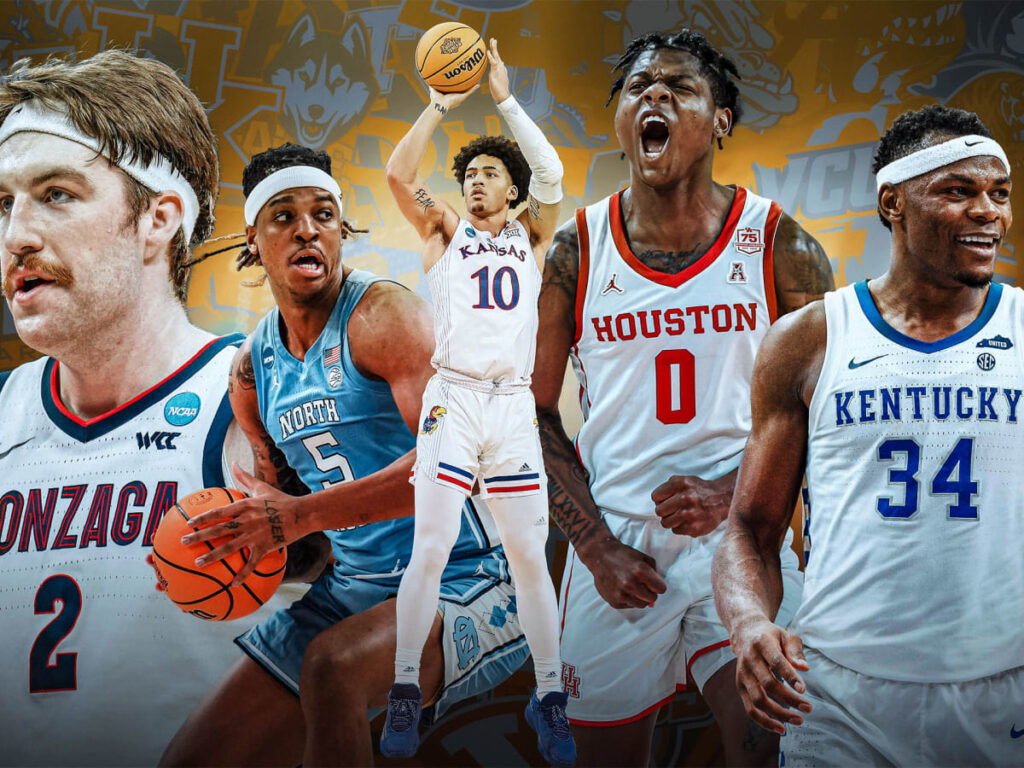
Source: si.com
The landscape of college basketball is enriched by the dynamic presence of both rising stars and experienced players; the former bring a vigor and athleticism to the game while the latter impart wisdom and strategic complexity.
Understanding the college basketball contrasts that exist between young phenoms and veteran collegiates can reveal much about the state of the game and the development of its players.
Young phenoms often electrify the court with their speed, agility, and hunger for explosive plays. These athletes, typically in their first or second year, bring freshness to their teams that can shift the momentum in pivotal games. In contrast, veteran collegiates provide a steady hand and measured approach to gameplay, utilizing their years of experience to navigate high-pressure situations with poise.
| Aspect | Young Phenom | Veteran Collegiate |
|---|---|---|
| Athletic Ability | High energy, peak physical condition | Seasoned, possibly past physical prime but understands body limits |
| Experience | Raw, learning through exposure | Broad, strategic insights from years on the court |
| Mentorship | Often the recipient of guidance | Acts as mentor, elevating team performance |
| Game Impact | Potentially inconsistent but brilliant | Consistent contributor, known quantities |
| Decision Making | Instinctual, occasionally impulsive | Deliberate, informed by past games |
While young phenoms may lack nuance in their game, they make up for it with unparalleled enthusiasm and the potential to redefine their positions. Meanwhile, veteran collegiates have the mastered the art of the game, understanding not just individual plays but the flow of the game at a macro level.
“In college basketball, maturity and experience are irreplaceable commodities. Veteran players exhibit a level of strategic finesse that can only be developed over time—a contrast to the unbridled energy of young phenoms.” – Basketball Analyst
Indeed, the impact of these two groups on a college basketball team is not simply additive; it’s transformative. Both are essential to the fabric of college basketball, creating a rich tapestry of talent that continues to push the boundaries of the sport.
Conclusion
Reflecting on the incredible journeys of the oldest college basketball players ever, it is evident that their age-defying feats have left an indelible mark on the fabric of NCAA basketball. The stories of these athletes traverse beyond mere athletic achievement, touching upon the NCAA basketball legacies each has fostered through perseverance and an unwavering dedication to the sport.
These inspirational college basketball stories resonate not only within the confines of sport arenas but also ripple through the lives of fans and aspiring players alike, demonstrating that the chronicle of one’s career need not follow a predetermined path.
The cultural tapestry of college basketball is richer for having included the experiences and talents of age-defying college basketball players. Their seasoned approach to the game—a blend of hardened skill and life-learned wisdom—challenges younger athletes to expand their own bounds of possibility.
As these veteran players etch their names across the annals of NCAA basketball, they cultivate a legacy that transcends statistics and record books, embodying the very essence of sportsmanship and the drive to transcend expectations regardless of age.
As we conclude, the narratives of these esteemed players stand as a testament to the power of ambition and the human spirit’s capacity to redefine the metrics of success in collegiate sports.
In the vast arena of NCAA basketball, where every dribble and dunk crafts history, it is the age-defying players who inspire the next generation with their tales of resilience. Their stories are not just inspirational college basketball accounts, but beacons of motivation for anyone daring to dream at any stage of life.
FAQ
Who are some of the oldest college basketball players ever?
Among the oldest college basketball players, one notable name is BYU guard Spencer Johnson, who continued to play in his mid-twenties. Other players who have played at older ages include Ken Mink, who at age 73 played for Roane State Community College, and other athletes who have extended their college careers due to various circumstances like missions, transfers, or extended eligibility.
What unique advantages do senior college basketball players bring to their teams?
Senior college basketball players often bring maturity, life experiences, and a deeper understanding of the game to their teams. Their leadership qualities and ability to mentor younger players can provide a stabilizing presence, while their game knowledge offers a tactical advantage on the court.
How do LDS missions affect the ages of college basketball players in Utah?
LDS missions usually span two years and are often undertaken by students immediately after high school. This results in players starting their college basketball careers at an older age, particularly in Utah where such missions are a common cultural practice for members of The Church of Jesus Christ of Latter-day Saints.
Is it common for players to compete in college basketball as seniors?
While it is not unheard of for players to compete as seniors, it remains relatively rare for athletes to compete in NCAA basketball into their mid to late twenties. Those who do often have their timelines extended due to unique circumstances such as missions, injuries, or eligibility extensions.
What are the college basketball age records?
While there isn’t an official record book for the ages of college basketball players, some players have gained attention for playing at an advanced age. Notable examples include players like Ken Mink, who played in his 70s, and players who have taken advantage of NCAA eligibility extensions to play into their late twenties.


